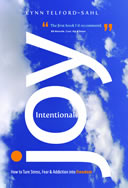Women: 5 Steps to Get Money House in Order
 Thursday, December 15, 2011 at 7:49AM
Thursday, December 15, 2011 at 7:49AM  1 Comment
1 Comment If you're self-employed, an entrepreneur or career oriented you've got to get your money house in order. I know, I know, it's nearly Christmas and you're crazy busy. But, I want to plant an important business seed for 2012 because it'll be here in ten seconds.
In order to make the most money, have less stress, and achieve your full potential (financial is part of that) and have fun along the way, here are 5 Money things you need to do in 2012.*
1) Get Your Money House in Order: Assess what's working well financially and what the challenges are. For example, let's start with the basics. Are you making enough money? No? What do you think/feel are the 3 main reasons for this? Be careful about blaming the economy. I know it's a factor, but I also know many businesses that are booming - mine included.
challenges are. For example, let's start with the basics. Are you making enough money? No? What do you think/feel are the 3 main reasons for this? Be careful about blaming the economy. I know it's a factor, but I also know many businesses that are booming - mine included.
2) Know your Money Story: Especially if you're struggling to get to the next level financially and you keep bumping up against the same obstacle or stuck place. I can guarantee you that there's a hidden emotional piece in your history. Yesterday, while going through The Money History with a client, she realized that her "make do and settle" pattern came from resistance to becoming like her mother. A huge ah-ha.
3) Write down your goals for 2012. If you're self-employed and you have a goal of earning $25,000 or $50,000 net income a year, how many clients will it take each week and month to bring in that amount of money. The more specific you are (a spreadsheet is handy) the easier it will be to achieve. Look at your goals each day, visualize the end result as if it's already happened. Then take action each and every day.
4) Realize that you have a RELATIONSHIP with money. As Suze Orman says and I'm paraphrasing: "Women don't show the same care to their relationship with money, as with other relationships, because they have a dysfunctional relationship with money. What are your money dysfunctions: Overspending, debt, avoiding, underearning, not respecting your money so you don't take good care of it? Identify THE major dysfunction and conquor it this year.
 5) Grow your Wealth: One of the biggest money mistakes I see women make (and I used to also) is to not grow their wealth. Women give too much time, energy and MONEY away to others - primarily children. If they don't they feel guilty. More money comes to us as we learn to respect it, take care of it, grow it. If you haven't started a retirement account or savings account (for emergencies - $1,000 minimum) make it a goal to start this year.
5) Grow your Wealth: One of the biggest money mistakes I see women make (and I used to also) is to not grow their wealth. Women give too much time, energy and MONEY away to others - primarily children. If they don't they feel guilty. More money comes to us as we learn to respect it, take care of it, grow it. If you haven't started a retirement account or savings account (for emergencies - $1,000 minimum) make it a goal to start this year.
*If you're in Modesto or close by check out my 2012 4 hour Business Strategy Session for Women). I do this workshop every year and at the end we do a Vision Board with your Goals and Action Steps for 2012)
 Lynn Telford-Sahl tagged
Lynn Telford-Sahl tagged  2012 Financial Goals,
2012 Financial Goals,  Economy,
Economy,  Less Stress,
Less Stress,  Money house,
Money house,  bankruptcy,
bankruptcy,  financial stress,
financial stress,  make more money,
make more money,  money history,
money history,  suze orman,
suze orman,  women and money,
women and money,  women's financial stress
women's financial stress











